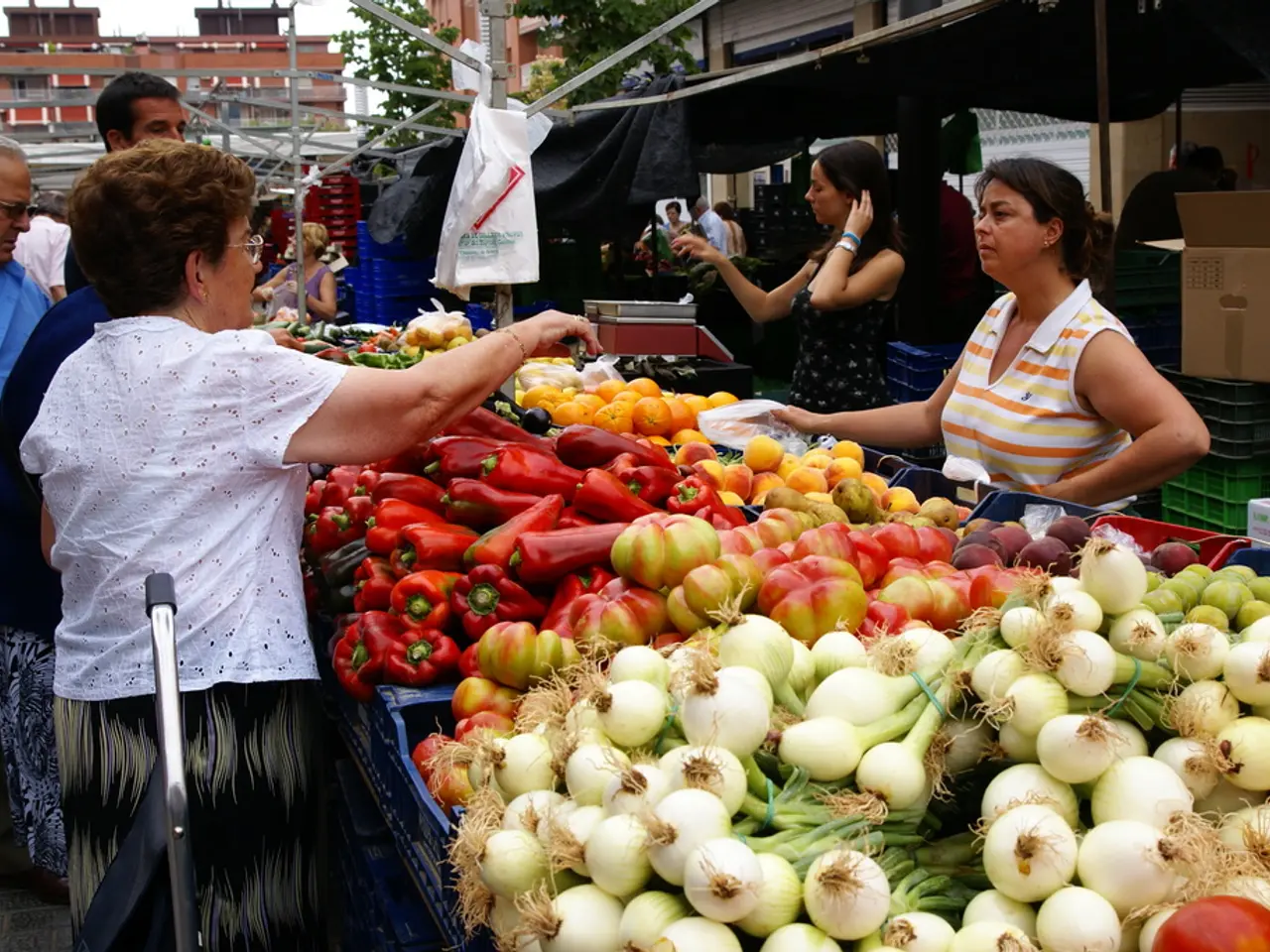Retail outlets persist in advancing their path toward a future devoid of plastic products.
In the heart of Southeast Asia, Vietnam is making strides in promoting environmental friendliness within its retail sector. According to recent reports, nearly one-third of consumers view environmental friendliness as the most crucial factor when shopping. This growing consciousness is reflected in the actions of both consumers and retailers.
One such retailer is Central Retail, which has committed to biodegradable plastics and has piloted packaging changes from plastic foam to environmentally friendly materials like paper bags and biodegradable options. The no-plastic bag day campaign, led by more than a dozen retailers including Central Retail, has been a significant step towards reducing plastic waste.
The government of Vietnam has also played a pivotal role in this movement. In 2022, the government issued criteria, a roadmap, and incentives for circular economy models. A national action plan was outlined, clearly defining the strategic direction and priorities for developing the circular economy in priority sectors and fields.
The efforts towards sustainability are not just limited to the capital city. Hanoi, for instance, aims to conduct surveys in over 120 wards to monitor waste generation and plans to launch an anti-plastic waste movement with extensive communication to the public and businesses. The Hanoi People's Council passed a resolution to reduce plastic waste, with markets and convenience stores to stop providing free non-biodegradable plastic bags by 2027, and to cease the sale and use of single-use plastic products and non-biodegradable packaging, including expanded polystyrene, by 2028.
However, challenges persist. Technology within the recycling plastics industry remains limited, with few recyclers capable of producing goods that meet quality standards and safety measures similar to those of virgin plastics. Sourcing clean recycled plastic remains a significant challenge for many retailers.
Despite these challenges, companies like Unilever are pushing forward. Unilever is procuring recycled plastic products that meet standards and supporting waste collection initiatives. The company is also focusing on raising awareness about waste classification at source and collaborating with domestic recycling partners to improve plastic properties.
The PRO Vietnam's Source Waste Classification report in 2024 revealed that 73% of Vietnamese people are concerned about environmental issues, and 57% often bring reusable bags when shopping. This growing awareness is a promising sign for the future of sustainability in Vietnam's retail sector.
In conclusion, Vietnam's retail sector is making significant strides towards sustainability. With consumers and retailers alike showing a growing concern for the environment, and the government providing support and incentives, the future looks promising for a greener Vietnam.








